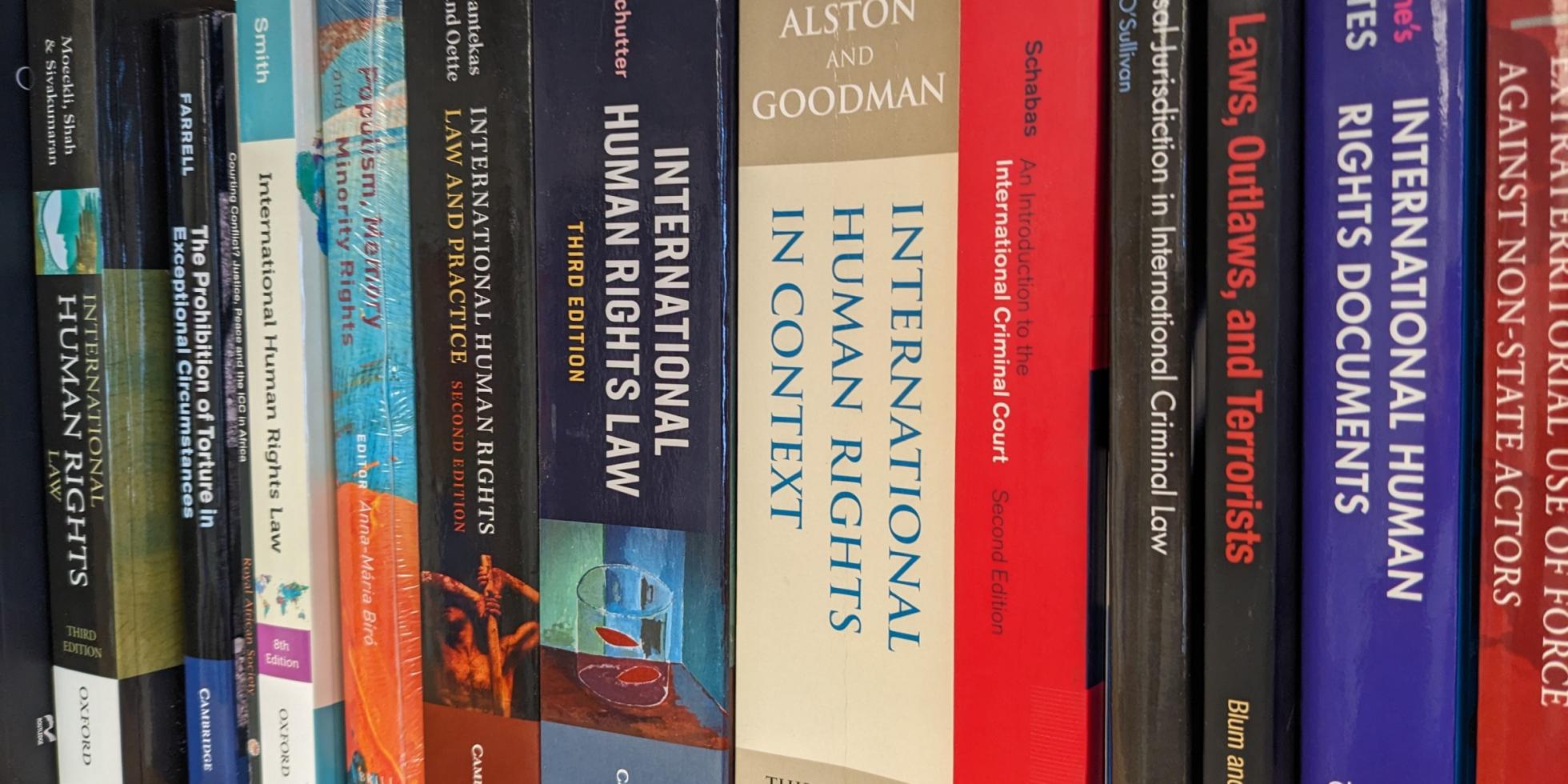The virtual human rights library brings together resources from multiple libraries and information services, both internal and external, to create an online hub dedicated to the study of human rights. This curation is unique in its interdisciplinary concerns and focuses on writings and research from social sciences, humanities, and law.
The virtual library is continually updated with the latest academic research in issue areas, as well as with relevant films, recorded conversations, and other forms of media.
Please Note:
The Virtual Library is usable by all visitors, but the hyperlinks to materials listed are for UChicago community members with a CNet ID and password.
Please direct feedback and suggestions to Kathleen Cavanaugh.
For technical assistance, email pozenhumanrights @ uchicago.edu.
Searchable Database
Click into the dropdowns to select the disciplines, keywords, and media type for your search, and then hit "Apply."
"Human Rights and Minority Activism in Japan: Transformation of Movement Actorhood and Local-Global Feedback Loop"
This article examines the mutually constitutive relationship between global institutions and local social movements. First, drawing on social movement theories and the world society approach, it develops a theoretical framework for understanding the transformative impact of global human rights on...
"Human Rights: What the United States Might Learn from the Rest of the World and, Yes, from American Sociology."
The U.S. Constitution includes civil and political rights—as individual rights—but does not include what is internationally understood to be “human rights,” namely rights we enjoy as equals, including economic, social, and cultural rights, and protections for vulnerable persons, such as...
"Opportunity, Honor, and Action in the Warsaw Ghetto Uprising of 1943."
Macrolevel theories of social movement emergence posit that political opportunity “opens the door” for collective action. This article uses the case of the Warsaw Ghetto Uprising to show that collective action need not always require opportunity. Warsaw Jews’ armed resistance...
"Talking human rights: How social movement activists are constructed and constrained by human rights discourse"
Human rights discourse is central for the work of international social movements. Viewing human rights as a context-dependent and socially constructed discourse, this article investigates how it is used by a specific social movement – Israel-critical diaspora Jewish activists –...
"Threat, Resistance, and Collective Action: The Cases of Sobibór, Treblinka, and Auschwitz."
How and why do movements transition from everyday resistance to overt collective action? This article examines this question taking repressive environments and threat as an important case in point. Drawing on primary and secondary data sources, I offer comparative insights...
Comparative Perspectives on Social Movements: Political Opportunities, Mobilizing Structures, and Cultural Framings
Social movements such as environmentalism, feminism, nationalism, and the anti-immigration movement are a prominent feature of the modern world and have attracted increasing attention from scholars in many countries. Comparative Perspectives on Social Movements, first published in 1996, brings...
Freedom is a Constant Struggle: Palestine, Ferguson and the Foundations of a Movement,
In these newly collected essays, interviews, and speeches, world-renowned activist and scholar Angela Y. Davis illuminates the connections between struggles against state violence and oppression throughout history and around the world. Reflecting on the importance of black feminism, intersectionality, and prison...
How Social Movements Die: Repression and Demobilization of the Republic of New Africa
How do social movements die? Some explanations highlight internal factors like factionalization, whereas others stress external factors like repression. Christian Davenport offers an alternative explanation where both factors interact. Drawing on organizational, as well as individual-level, explanations, Davenport argues that...
Human Rights in China: A Social Practice in the Shadows of Authoritarianism
How can we make sense of human rights in China's authoritarian Party-State system? Eva Pils offers a nuanced account of this contentious area, examining human rights as a set of social practices. Drawing on a wide range of resources including...
Rights make might: Global human rights and minority social movements in Japan
Rights Make Might examines why the three most salient minority groups in Japan all expanded their activism since the late 1970s against significant headwinds, and chronicles how global human rights ideas and institutions empowered all three groups to engage in...

